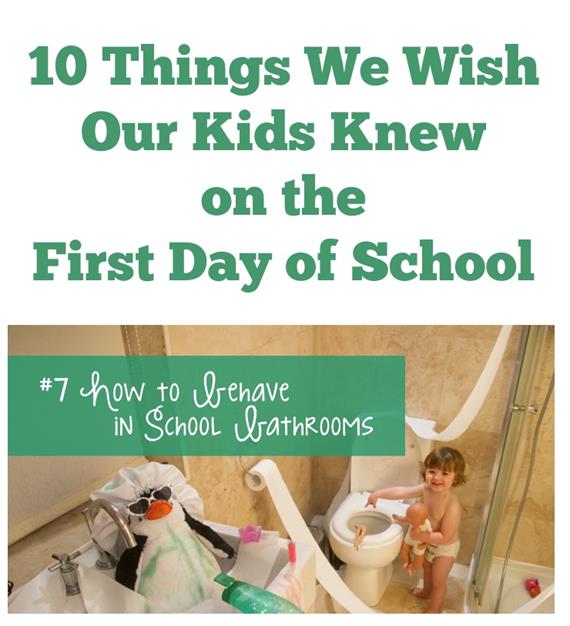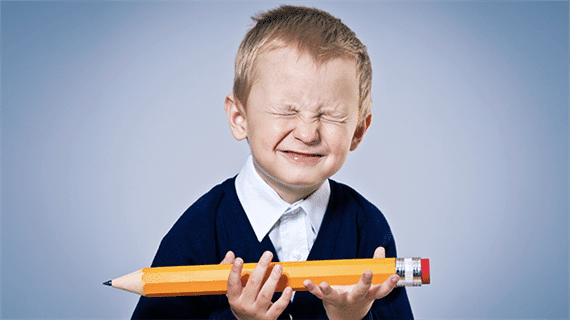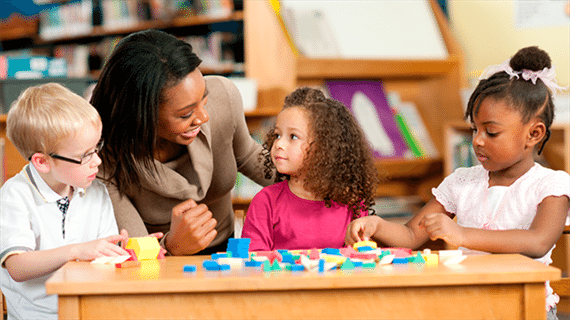The fact that we can teach all of the basic life skills that we do, and manage to introduce academic skills too, usually leaves us feeling pretty proud of ourselves. We’re also left not wanting to pass these joyful, eager creatures we’ve helped shape on to the next grade. (We don’t want to have to start all over again from scratch!) Sometimes (only sometimes) we wish we could start the year in January, with all of those readiness skills in place. In that spirit, we put together a fun list of all of the skills that we pre-K and kindergarten teachers wish our students had on the first day of school!
We wish they knew …
10. How to tie their shoes. (Or use Velcro!)
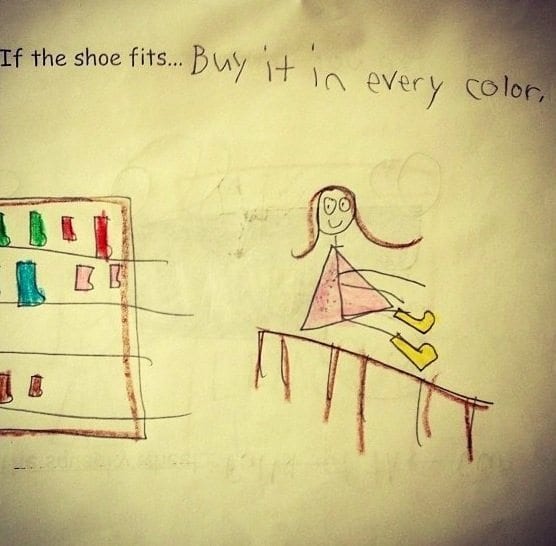
Source: Pinterest
Have you ever tried to tie 25 pairs of shoes, multiple times all day? You have if you’re a kindergarten teacher. Some kids are ready to learn this skill at age 4 or 5. Some need more time and aren’t ready until first or second grade. Regardless, it’s a skill we introduce every year in our program, if only to save our aching backs! We bow down to the people who invented Velcro!
9. How to wash their hands.
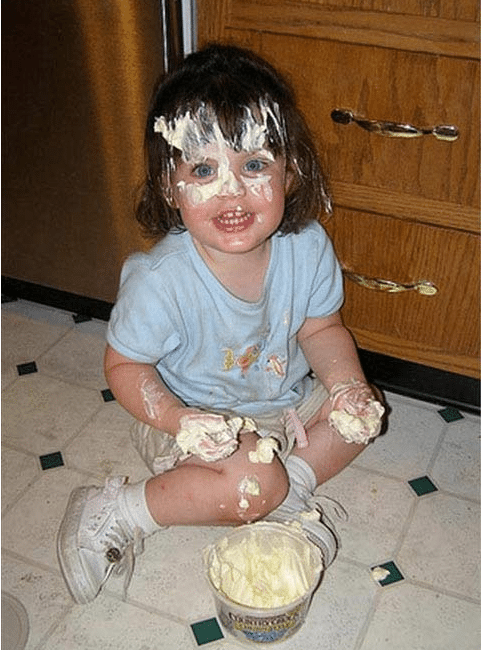 Source: The Meta Picture
Source: The Meta Picture
Kindergarten can be messy! How many of you have seen this scenario play out in your classroom with paint? Our hand is raised high! Hand-washing is a tougher skill to master than you might imagine, especially when messy fingers make for messy faucet knobs. (Any of you lucky enough to have motion-sensor sinks?)
8. How to keep fingers and foods out of noses and other orifices.
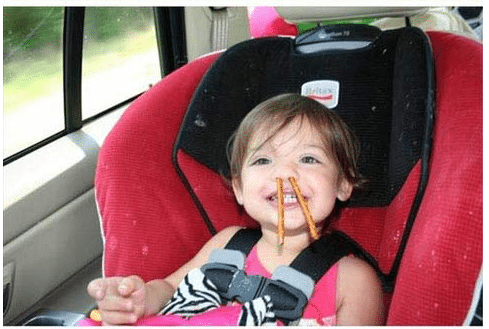 Source: The Meta Picture
Source: The Meta Picture
This is a big one! Isn’t it funny how some groups are worse about this than others? We had to implement a strict “no pick and eat” rule last year. Ew!
7. How to behave in school restrooms.

Most kids are potty-trained by the time they get to pre-K or kindergarten, but that doesn’t mean they have bathroom manners! How many times have you walked into the bathroom to find that the walls have been “decorated” fire-hose-style or that the floors have been carpeted with toilet paper? For us, it’s more times than we can count!
6. How to use their gross motor skills.
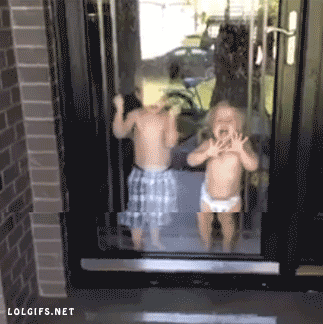 Source: Reddit
Source: Reddit
While we won’t expect every child to be able to swoop in and rescue their siblings from phantom water attacks, it does help if they’ve got some solid motor skills under their belt. We can always tell when kids have spent ample time on the playground or in the backyard.
5. How to maintain a strong sense of self.
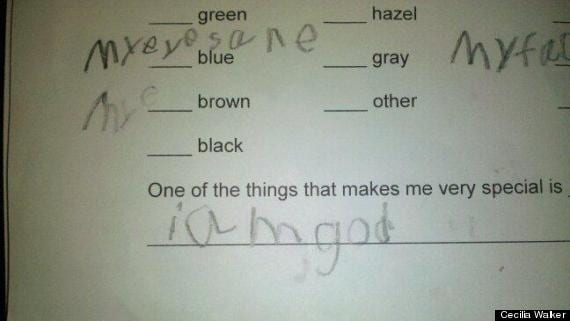
Source: Huffington Post
Confidence is a great thing. Perhaps not quite this much confidence, but you get what we mean. When kids come in feeling good about themselves and valued by their parents, we know they’re already at an advantage.
4. How to show kindness to people.
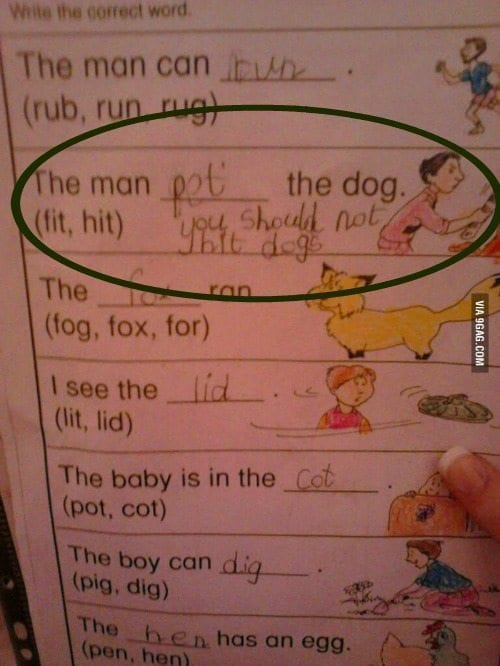
Source: Huffington Post
Compassion matters. When it’s been modeled at home, kids are more likely to show compassion to their friends (and worksheets!) at school. This one is tough to teach!
3. How to share.
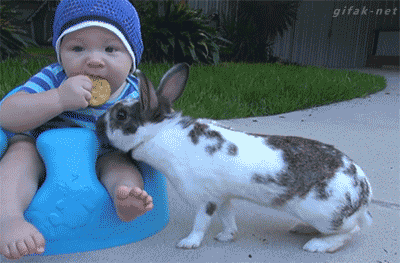
Yep. It’s a big one. Sharing doesn’t come easily. And then there’s the complicating factor that we shouldn’t share everything (food, germs, answers). Still we love it when kids are able to share and collaborate with their classmates. It’s something that comes with practice. We work on this one well past January.
2. Early literacy skills.
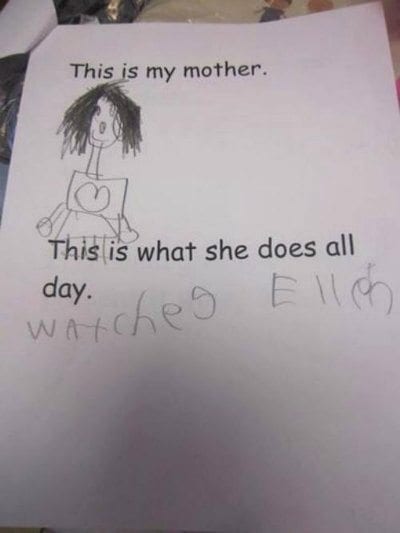
It’s always entertaining when kids tattle on their parents. Writing skills facilitate that process. We love it when they come to us knowing letters and sounds and are able to put together a few words, but honestly, we’re just happy when we can tell that they’ve been read to on a regular basis.
1. Early number skills.
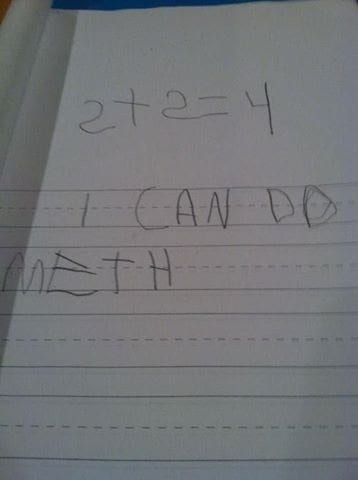
Source: Buzzfeed
Or does this one go with literacy? We’re not quite sure. It’s easy to tell when parents have been counting with their kids at home. Teaching math facts isn’t necessary (and certainly not “facts” like the one above!), but teachers know that taking time to count “slugbugs” while driving or orange slices while eating is some of the best school prep out there.
We laugh about kindergarten readiness, and we dream a little too. (Who are we kidding? We alI know that the nose-picking is never going to go away!) But we also know that school preparedness really can make a difference for kids.
One way to get kids coming in with readiness skills is to educate parents. Woodburn Press publishes booklets that are designed to help parents prepare their kids for kindergarten and prekindergarten. The books are perfect to hand out at kindergarten registration night or even to parents of current students with younger children.
Wish all of your future parents could know what is on your kindergarten wish list? Check out how you can order a set of Getting Your Child Ready for Kindergarten booklets here. They’ve got a set for pre-K too.
